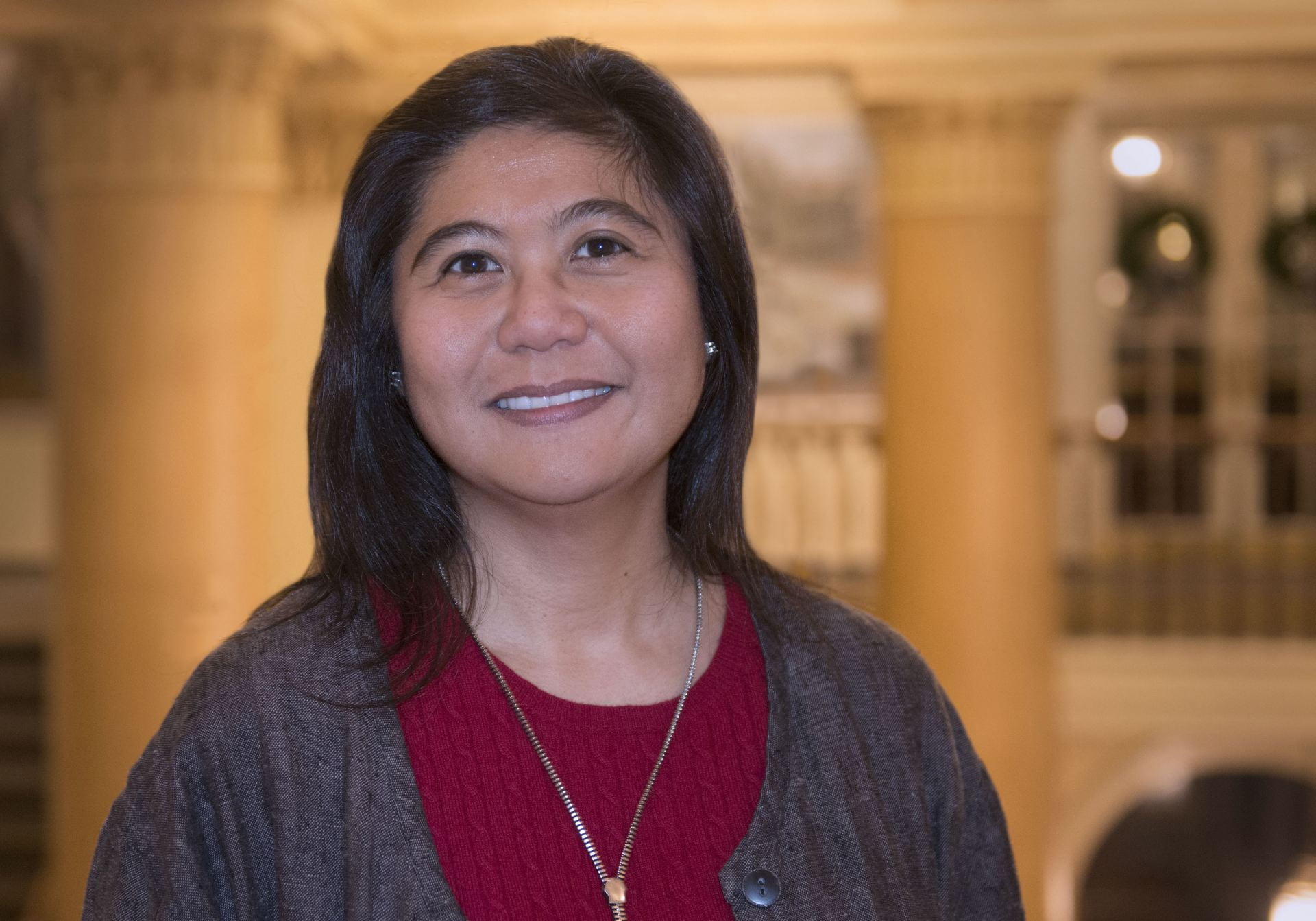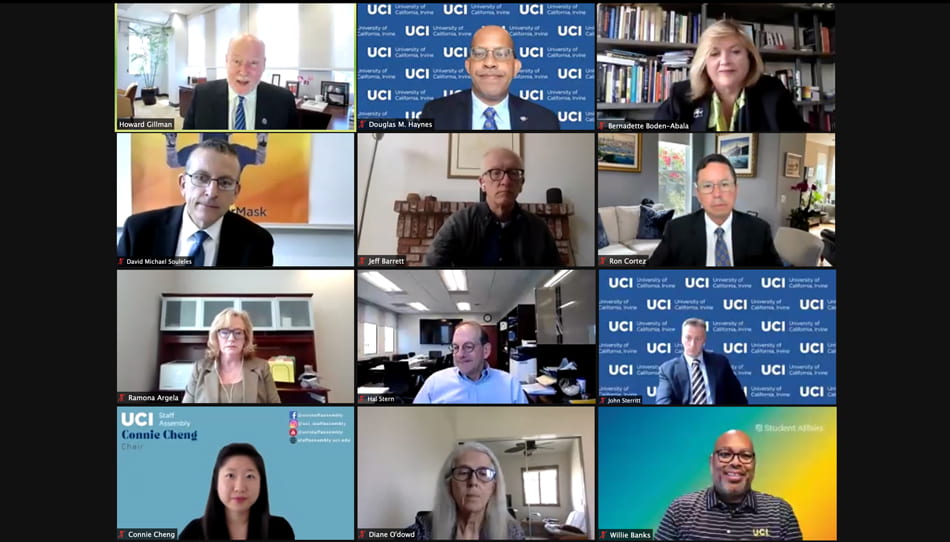Q&A on proposed state budget
Campus leaders urge students, faculty and staff to become advocates.
Gov. Jerry Brown’s budget proposal for fiscal year 2011-12 includes a $500 million funding cut for the University of California. The UC budget gap is actually closer to $1 billion, when factoring in state general fund reductions and unfunded cost increases for things such as health benefits, utilities, recruitment and retention of faculty, and UC contributions to the retirement system. (The state is not contributing to UC’s retirement program).
For UC Irvine, current estimates are for an approximately $54 million cut in 2011-12. Closing this budget gap will require fresh ideas and an array of actions to maximize efficiency while protecting our core mission. At town halls this week, Chancellor Michael Drake explained the current budget climate, sought input from the campus community and answered questions. Here are some common themes.
Q: How bad is California’s budget deficit?
A: It’s serious. The state faces a $25.5 billion budget gap and the governor proposes to address this gap on a permanent basis with about half of the solution coming from budget cuts and the other coming through revenue. The revenue is generated by extending current tax rates that are due to sunset in June 2011. Such an extension would have to be approved by a two-thirds majority of the state legislature and then placed on a special-election ballot to be passed by a majority of voters. If tax increases are not approved and extended, the situation could be worse.
Q: What does all this mean for the University of California and UCI?
A: The governor has called for a $500 million funding reduction to the University of California, which means UCI has to cut about $54 million from its operating budget. We hope this will be reduced as the UC Office of the President considers its many options, but we can’t count on that. Last year, UCI did get funding from the state for enrollment and this will help soften the cut from the state. At the same time, however, we face mandatory cost increases – employer contributions to the retirement system, higher health benefit costs, utility bills, etc. So we currently estimate our budget gap will still be in the $50 to $54 million range
Q: How will decisions be made about how to make these cuts?
A: Executive Vice Chancellor/Provost Michael Gottfredson heads the campus’s Budget Work Group, comprising faculty, staff and students. This group will work openly and transparently to determine how to close the gap, and they expect to have recommendations ready by late spring. Coming on top of cuts we already have taken, we will not be able to simply chip away across the board. We will need to look closely at services and programs and make tough decisions.
Q: How will current and future students be affected?
A: Some programs ultimately will be closed. To do this right takes time, and we will analyze these measures in close collaboration with deans and vice chancellors. We cannot rule out additional fee increases. We also feel strongly that we cannot enroll students without state commitment for appropriate support, so for 2011-12, we will seek to maintain our enrollment at current levels.
Q: How does all this affect current faculty and staff, recruitment and hiring?
A: We will continue to hire some faculty and we can’t stop doing our business, but we will hire critical positions only. With or without a hiring freeze, every hire will be scrutinized. We will do everything possible to minimize layoffs through attrition and eliminating open positions. At this time, there is no plan for furloughs. We may have to turn to temporary reductions in salary, but we are not currently endorsing this strategy. It would be very low on our list, but we can’t rule it out.
Q: Will there be another VSIP or early retirement incentive program?
A: We don’t know. It would have to be proved that this would save us money. The VSIP program was intended as an incentive to encourage staff who are considering retirement or considering a position outside the University. Savings are achieved only if the unit does not have to replace the staff person who is leaving. It is not clear that those who would potentially choose VSIP would be in the areas where cuts need to be made; thus, units might find it necessary to hire a replacement, therefore eliminating any opportunity for savings.
Q: Will there be another START program, which offered employees the opportunity to voluntarily reduce their work hours and pay?
A: Office of the President is looking into this. If there is, it will look different than it did before. It would be unlikely that any new START program would provide staff on reduced time with full pension benefits.
Q: What can we do to help?
A: First, advocacy is vital and it worked well for us in 2009-10. Legislators say that a handwritten letter from university constituents carries much more weight than the hundreds of emails they get every day. It means something to them when we take the time to sit down and write a letter. And second, if you have any new, creative, useful, positive ideas for saving money, increasing revenue or otherwise closing this funding gap, send your ideas to myfeedback@uci.edu.

